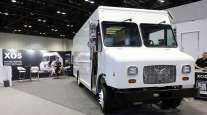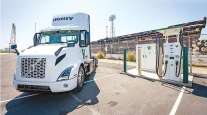Staff Reporter
Minnesota Report Cautions Against Rush to EV Transition
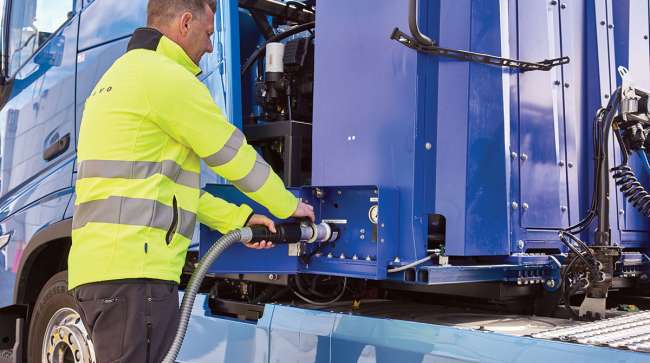
[Stay on top of transportation news: Get TTNews in your inbox.]
State lawmakers rushing to jump on the battery-electric vehicle bandwagon for longhaul and shorthaul regional trucks will create a web of interconnected operational roadblocks and impeded efficient delivery of goods, and cause higher consumer costs, according to a new report.
“If we don’t get this right and force vehicle electrification over other promising options, it will impact the cost and availability of food, clothing, medicine, appliances, machine parts and thousands of other goods,” said John Hausladen, Minnesota Trucking Association president. “The trucking industry has proven that we can achieve both meaningful emission reductions and a stable supply chain if we follow a thoughtful, fuel-neutral developmental process.”
A new report by MTA's Alternative Fuels Task Force analyzed alternative fuel types and identified key barriers to be overcome for both local and over-the-road trucking fleets to replace diesel engine trucks with battery-electric models. Meeting last year from June through November, the task force also looked at hydrogen fuel cell trucks in developing its fact-finding report.
“Government incentives and mandates rather than consumer demand are driving current interest in exploring alternative propulsion technologies (74% entirely or mostly government mandates vs. 26% consumer demand),” the report concluded.
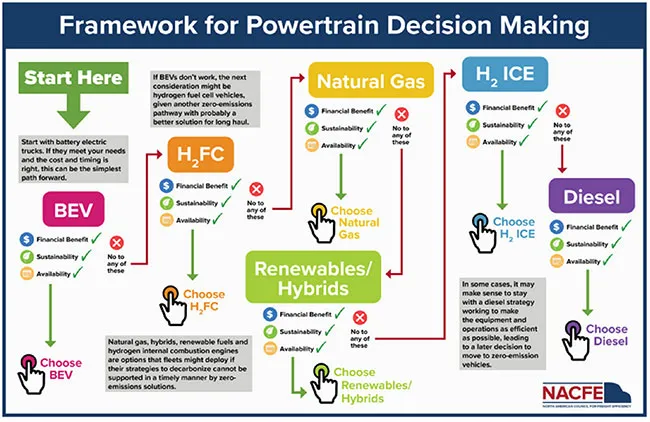
There are numerous state and federal efforts to use regulatory powers to force local governments, businesses and people to use EVs. In addition, some government financial grants and tax breaks are being made available to motivate people and companies to ditch traditional gas and diesel vehicles for EVs.
“Legacy original equipment manufacturers are being challenged by both new entrants and federal mandates to shift production to medium- and heavy-duty LETs [low-emission trucks] and ZETs [zero-emission trucks]. Truck dealers are largely in a reactive mode as they respond to OEM decisions and state and federal mandates,” the report stated. “Minnesota has no defined plan for mandating the use of Class 7-8 LETs and BETs [battery-electric trucks] at this time. Such rules could be adopted by administrative rule without action by the Minnesota Legislature.”
Hausladen described the development gap as enormous between EV cars and heavy-duty trucks, especially since the report noted the transition for 18-wheelers and other heavy-duty vehicles is “largely conceptual” — facing technology and infrastructure challenges that will require substantial government investments over many years.
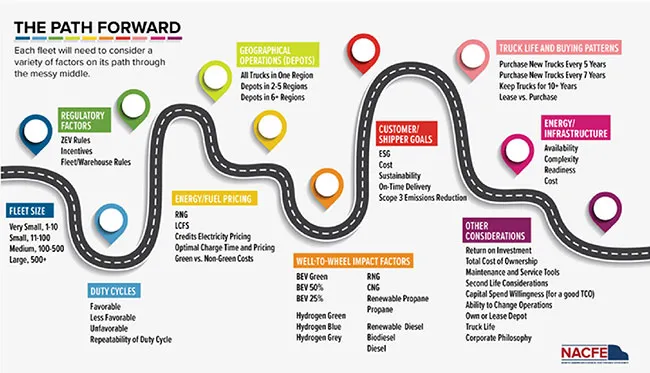
“The reality is that Class 7-8 trucks will be powered by internal combustion engines run on diesel or similar fuels for decades to come,” the MTA report concluded. “Government policies need to acknowledge and address this reality rather than mandate the use of a specific alternative propulsion source — such as electricity — to power heavy trucks.”
EV refueling time is another huge issue. A diesel truck can be fueled in 15 minutes and travel 1,200 miles vs. longhaul battery-electric trucks that need from five to eight hours to charge and only drive 150 to 330 miles before needing a recharge — if chargers are even available.
Heavy trucks are expected to need megawatt chargers. Having no uniform industry standards, megawatt electric vehicle chargers would provide more powerful electricity flows for heavier vehicles and these chargers are in their development infancy.
The high cost of EV heavy trucks was another key critical issue.
“A new, clean-diesel longhaul tractor typically costs between $180,000 to $200,000, while a comparable battery-electric tractor can cost upwards of $480,000,” the report stated. “Transition to new fuel and energy sources will require significant federal and state subsidies to build out the infrastructure and offset the cost differential for truck fleets. Federal incentives are minimal and state incentives are nonexistent.”
Cold-weather battery loss is an important consideration in Minnesota and other states. “Battery-electric trucks in cold-weather states such as Minnesota are specifically challenged due to the 30%-40% reduction in performance,” the report noted.
Want more news? Listen to today's daily briefing above or go here for more info
The 18-page MTA report includes information of special interest to trucking fleets and advises them to follow a “go slow” approach when considering equipment investments.
It also found that developing heavy-duty electric trucks, necessary infrastructure and pricing is impractical for near- or midterm adoption for the longhaul trucking sector.
“Hydrogen fuel cell technology and hybrid ‘range extender’ technologies (e.g. natural gas engine charging onboard batteries) show promise for longhaul trucking,” the report stated.


